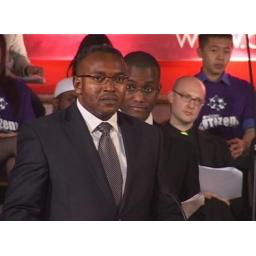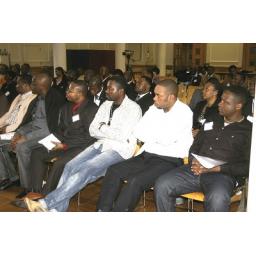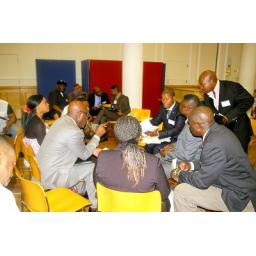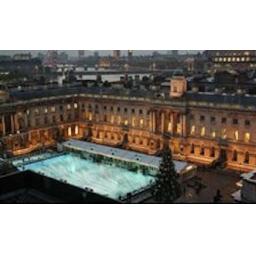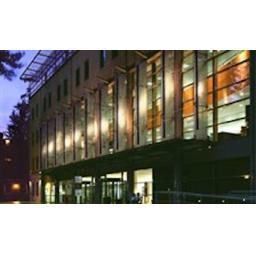ARTICLE ON GUARDIAN NEWSPAPER
President Okito Tongomo, leader of the Congolese opposition and president of the Congo Support Group, said he would continue protesting. “The situation on Congo is catastrophic and we are calling for regime change and respect for the constitution,” he said.
Click the link here to view the article:
https://www.theguardian.com/world/2018/jan/15/congolese-government-in-rent-arrears-for-london-embassy
The anti-Congolese government protesters daubed graffiti on the the London embassy calling for the removal of Joseph Kabila, the country’s president.
The squatters, who call themselves the Embassy of the Republic of Conscience, moved into the property in late December. Describing themselves as “environmentally conscious artists”, they have displayed art installations parodying Donald Trump and his stance on climate change and have papered the walls with the UN’s 17 sustainable development goals.
The part of the building the squatters are now occupying was previously a shop. There are colourful displays in the shop window on climate change and sustainable living.
Daniel, one of the squatters, said: “We wanted a space near Oxford Circus to highlight issues of sustainability. We set up a pop-up embassy of the Republic of Conscience next to the Congolese embassy. As soon as we moved in we witnessed Congolese protesters outside the embassy protesting about human rights abuses. We have had a lot of support from local shopkeepers and will continue to spread our message about environmental sustainability.”
Congo Support Group apprends avec une profonde émotion la mort du président Etienne TSHISEKEDI WA MULUMBA le père de la démocratie au Congo. Le Congo Support Group s'incline devant la mémoire du patriote exceptionnel qui, après avoir assumé les destinées tragiques de laRDC, a su se dépasser de nouveau dans la rencontre des grands destins et concevoir, dans une vision noble et généreuse, ce que devait être désormais l'avenir du Peuple Congolais. Ainsi une grande page de l'Histoire est écrite. Puisse-t-elle toujours nous enseigner que la liberté et la dignité du peuple sont le meilleur garant de la paix et le progrèssocial .L'exemple du président etienne TSHISEKEDI WA MULUMBA sera toujours présent, et l'Histoire se souviendra de ce que la RDC d'abord, et l'humanité tout entière, lui doivent. Nous allons continuer ton noble combat. Toutes nos condoléances à sa famille biologique; à l'UDPS;au rassemblement et au peuple Congolais
Mr OKITO TONGOMO,
président de Congo Support Group
After 20 Years of Isolation, Congolese Cities and Urban Centers Experience a Revival
STORY HIGHLIGHTS
Much of the Democratic Republic of Congo’s vast territory is poorly connected. For many such as Christine Monga, a businesswoman in Buta, communication between Kinshasa, the capital, and other provincial cities is challenging with access to rural areas near impossible.
To address this situation, the International Development Association (IDA) is financing the Pro-Routes Project that has already rehabilitated over 2,400 kilometers of priority roads.
KINSHASA, May 4, 2017- Alongside other businesswomen, Christine Monga is selling a range of secondhand clothes such as dresses, skirts, shirts, pants, and jackets along the avenue leading to the central market in Buta, in the new province of Bas-Uélé, located 324 kilometers from Kisangani. She is positioned in front of a charming house under construction, with pre-painted tile-shaped sheet metal, which captures the attention of passersby. This house is Christine’s pride and joy. Construction was made possible by the reopening of the 400-kilometer stretch of road between Kisangani and Buta, which had been impassable for more than two decades.
These rehabilitation works have made a world of difference for Christine. Long gone are the days when she had to travel some 800 kilometers by motorbike to get supplies in Butembo, when she was launching her secondhand clothing business with a number of female friends back in 1997, establishing the Women Against Poverty Association.
“It wasn’t easy because we were far from everything. We used to travel by motorbike between Buta and Kisangani because of the poor road conditions, and this trip could even take as long as two weeks. It was difficult and many members of the association are still suffering from the after-effects or disabilities caused by accidents. Now, with the reopening of the road, we can make the same trip in three or four days and travel to Kisangani during the daytime.” A time saver that is also reflected in the earnings shared among Christine and her friends.
Launched in August 2009, these rehabilitation works were carried out under the Pro-Routes Project(high-priority roads reopening and maintenance project),which has already rehabilitated over 2,400 kilometers of priority roads in the Democratic Republic of the Congo (DRC) and is expected to rehabilitate 3,400 kilometers by February 2018.
A vast, isolated territory
However, the Bas-Uélé province was not the only one with dilapidated roads. In fact, of the ten provincial capitals in the country, only two (Matadi and Mbandaka) were relinked by road to Kinshasa, the national capital. Two cities (Kisangani and Bandundu) were accessible by river only, while six (Kananga, Mbuji-Mayi, Lubumbashi, Kindu, Goma, and Bukavu) could only be reached by air.
The aim of this project, which is being financed by IDA, the British cooperation agency, and the Democratic Republic of the Congo through the national road maintenance fund, is to re-establish lasting access, in a manner that is sustainable for the environment and the neighboring communities, to the main road links that can pave the way for socioeconomic recovery and the domestic and regional integration of the country.
In view of the DRC’s enormous size (2.3 million square kilometers) and the volume of financial resources needed to achieve this objective, the project adopted a gradual approach, using a low-cost, stage construction method supported by major and ongoing maintenance. This facilitated the simultaneous reopening of as many kilometers of roads as possible, thereby opening up access to as many communities as possible.
From $70 to $35 per bag of cement: An already visible impact on the economy
Ever since vehicular traffic between Kisangani and Buta was restored, the region has sprung to life after two decades of isolation. Transport facilities, access to basic commodities, the decline in market prices, and opportunities for trade with the Tshopo, Ituri, and Nord-Kivu provinces are contributing to the socioeconomic recovery in all areas. “Now we can travel from Kisangani to Buta in under six hours. That is quite significant when you think that in 2008, only motorbikes and bicycles transporting heavy loads in very difficult conditions were traveling on the road that had become a track. All that has changed,” asserts Théophile Ntela Lungumba, Coordinator of the Infrastructure Unit, the executing agency for the Pro-Routes Project.
Christine decided to make the most of her increased profits and the lower cement price, which had fallen from $70 per 50-kilogram bag to $35, to build a house. “I wanted to build a house like the ones I saw in Beni and Butembo,” she told me, “because now I have the resources. A younger brother who is an architect drew up the plan and there you have it. All the materials except the bricks come from Butembo,” she continued, adding “I owe my house to this road.”
Christine’s case is not an isolated one. Many people are taking advantage of the new situation created by the reopening of the road to develop their small businesses in Buta or invest in more ambitious projects such as the hotel industry, pharmacies, clothing stores, trade in grains, fishing or hunting products, hardware stores, and motorcycle sales, which are thriving all over the place. “This project is a great investment because it is helping improve people’s lives,” concludes Alexandre Dossou, World Bank Task Team Leader.

































